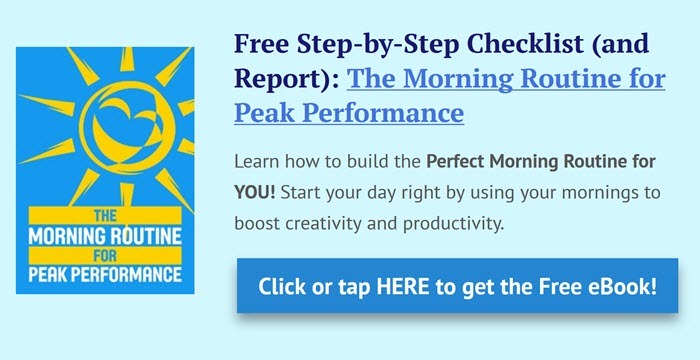If you want your money to grow, it is important to not let it just “sit around”.
Your money should be out there working for you. Making more money on its own.
One of the best ways to do this is by getting a high yield savings account.
Benefits of a High Yield Savings Account
Why should you put your money into a high yield savings account?
You work hard for your money. So it is good that it can grow a little bit on its own.
High yield savings accounts are not going to make you suddenly rich. The interest rates on high yield accounts are still fairly low, but they do much better than letting your money sit in account that only gives .04% interest.
There are two main advantages high yield savings accounts have over other potentially more lucrative investment vehicles.
Want other ideas to get more from your money? See the 17 Best Money Saving Apps to Save, Invest, Budget, Coupon and more…
1. Risk-vs-reward
For those who are risk averse, high yield savings accounts is one of the best ways to make your money make money. There is no risk involved. Your money is backed by the government with FDIC insurance up to $250,000.
When you put your money into these savings accounts you can be sure you will get all of your money back, plus whatever interest has accrued, whenever you need it.
2. Liquidity
When you put your money in (slightly) higher yielding CD’s or Bonds, you also get security backed by the US Government, however you give up liquidity.
This means that you commit to a period of time, from 6 months to 10 years where you cannot touch your money (or you face penalties). With high yield savings accounts, your money is yours and you can take it out when needed, whenever you desire.
Alternate Savings Options
I don’t want you fixating on high yield savings accounts. Depending on your unique financial situation, there may be many other options you might want to investigate to have your money make money.

Below are some more popular investment methods. But before you put too much money into any one of these investment opportunities, I suggest you should read more about investing.
1. Certificates of Deposit
These are available through most banks and credit unions. They generally offer higher rates than most high yield savings accounts, but they also require that you leave the money in for a set amount of time or face big penalties.
2. Bonds
Bonds are another another way to invest your money. Often for a preset period of time. The safety level of bonds is variable. A “Treasury” bond for example is backed by the “full faith” of the US Government, and is often considered to be the most secure form of investment possible.
Then there are corporate bonds, municipal bonds, mortgage backed bonds. Every bond is basically an IOU from the company/government entity and is as reliable as the group that issues the bond.
3. Gold
Gold will always be a viable investment opportunity. The supply of gold in the world is limited, therefore the price constantly fluctuates. Like stocks, gold can be a “hit-or-miss” investment.
Given long enough time period, the price of gold will always rise. But if you need to make a profit in a single year of investment, this can be a very risky proposition, with a decent chance of even losing value in the short term.
4. Stocks
The stock market is an alluring draw for many people. The potential is high, but so are the risks. You might invest invest a thousand dollars with some new volatile stock and see your money triple in a few months time.
However, during the same time period your stock investment could go to zero. By investing in large companies with solid track records, your risk is reduced, but so is the potential profits.

5. Mutual Funds
Mutual funds are, at their core, groups of people investing together in some areas of the stock market. The “big wins” balancing out the “big loses” to create a general upward trend in money. Most mutual funds average well over 2% interest annually.
However they ALL have down years where they lose a bit of money. The average for these funds is spaced over longer periods of time. If you put money in mutual funds it should be money you don’t “need” for at least 5 to 10 years.
6. Exchange Traded Funds (ETF’s)
ETF’s are similar to mutual funds, but they are also traded on the stock market and may rise and fall in value due to the buying perceptions of investors. Typically ETFs group related businesses giving you chance to “place your bet” on the growth of a specific market rather than a specific company.
For example, if you think robotics and artificial intelligence is going to be the “next big thing” but don’t want to risk money on one of hundreds of competing companies you could instead invest in the ETF – BOTZ which is a collective investment vehicle of many of the best companies in that field.
7. Real Estate/Property Investing
It takes a bit of capital to invest in real estate. It can be a pretty pricey investment, with no true guarantee of profit. But as long as you are willing to invest in the long term, it can be a great investment. This is my personal long term investment choice.
Over the past few years I have invested in three small rental properties. But it may not be for everyone. If you are interested in investing in real estate please thoroughly read up on real estate investing.
7 Awesome High Yield Savings Accounts

1. Marcus by Goldman Sachs
Marcus offers an amazing 1.80% APY for your savings. Which is remarkable when you consider that this is 4X the national average.
There is only a 1$ minimum to start this account and keep it active. So unlike some high yield savings accounts, where a large minimum deposit is required, this account is designed for everyone. The biggest drawback to this account is that they limit withdrawals to six per month.

2. CIT Bank
CIT bank offers a 1.55% APY high yield savings account option. There is also a 100$ minimum required for this account. The advantage of CIT Banks over some other banks with flashier (and higher) APY interest rates is the power of compound interest.
Rather than breaking their 1.55% APY into monthly or yearly chunks, they adjust their rates daily. With enough money this can make a big difference and with compound interest be a sizable price difference at the end of the year. Finally, there are no fees involved to open or maintain this account.

3. Discover Bank
Discover is another great “everyman” bank. No costs. Low minimum. APY is currently 1.65% but they have a variable rate.
This is actually a good thing. Since the government is expected to raise the prime rate a few times in 2018 and 2019. This number may simply get larger rather than necessitate the need to find a new bank with high yield rates.
4. Ally Bank
Ally Bank is a 100% online savings account. They offer a nice 1.65% APY on all savings accounts. Since they are an online only entity, they make online and mobile banking a key, with a easy to use mobile check deposit feature. They have an app that is easy to navigate and simple to use, allowing banking transactions from anywhere at any time.
They have no fees for use, but, like most banks, they do have big overdraft and excessive transaction charges.

5. Synchrony Bank
Rated by Nerdwallet as one of the best banking options for the past 5 years running. Synchrony Bank offers a VERY competitive 1.75% APY for all of its investment tiers. The three tiers are $ 0-4999 invested, 5000-24,999 invested and 25,000+ invested. All three investment tiers feature the 1.75% APY.

6. Northpointe Bank
The savings at Northpointe bank are amazing. 2.05% APY interest on an account that is not some sort of promotional offer is a really big deal. Of course there are stipulations. The main thing is that your money need to be like Goldilocks. Not too big or not too small.
There is a 25,000 minimum to qualify for the 2.05% interest. If your money dips below 25,000 the account reverts to a 1.12% interest rate. Not bad, but nothing to write home about. Also if your account passes the 1 million dollar mark, it also becomes a 1.12% interest rate.

7. DCU – Credit Union
DCU offers a high yield banking rate that can only be done on a promotional basis. DCU would go out of business if they offered this rate on all accounts, all the time. They off a stunning 5.12% APY high yield savings interest rate.
Of course there are restrictions. First you must become a member of the credit union. Which can be done for as little as a 10$ charitable donation (tax deductible).
Then there is the amount. This interest only applies on savings investment from 5$ (the minimum) to $1000. Every dollar over 1000 becomes a “blended” total APY, blended with a standardised .25% APY. So if you had 1500$ in the bank, 1000 would make 5.12% APY interest and 500$ would only make .25% interest.
That makes this a great “starter” account for someone looking to build a tiny bit of savings. But once you break past the 1000$ mark you will want to park money over that amount somewhere else.
Why high yield savings matter.
Hopefully you can see the possibilities for high yield savings. These savings accounts can be the perfect place to park money for a “big” purchase you plan to make within a few months or years. Things like buying a home, saving for a wedding, college tuition, buying a new car or any large purchase you want to make without digging a credit hole. (or trying to make a hole a less deep one).
Rather than having large sums of money sitting around for months, putting it in a high yield savings account will make your money grow a little bit with no real risk, and full access to your money should the need arise.
Hopefully you add this to your list of good money habits. If you want to discover more great habits you can build to help you save, budget invest and get more “bang for your buck” check out the article linked below.
Thanks for reading this financial habits post. Hopefully the idea of high yield savings accounts may help you to earn a few bucks on any money you have to spare. The potential to make money from your investments is out there, you just need to do the work to make it happen.
If you generally want to improve your personal finance skills I recommend you check out this article on better money habits.
Best of luck with your finances. If you liked this post on high yield savings accounts, please share it on your favorite social media platform. Also if you know of other high yield savings accounts please share that information in the comments below.
Specifically share the APY and the reasons why people should invest their hard earned money in that specific savings account. (IE benefits and anything that makes that platform unique.)
Thanks for your time and happy investing.



